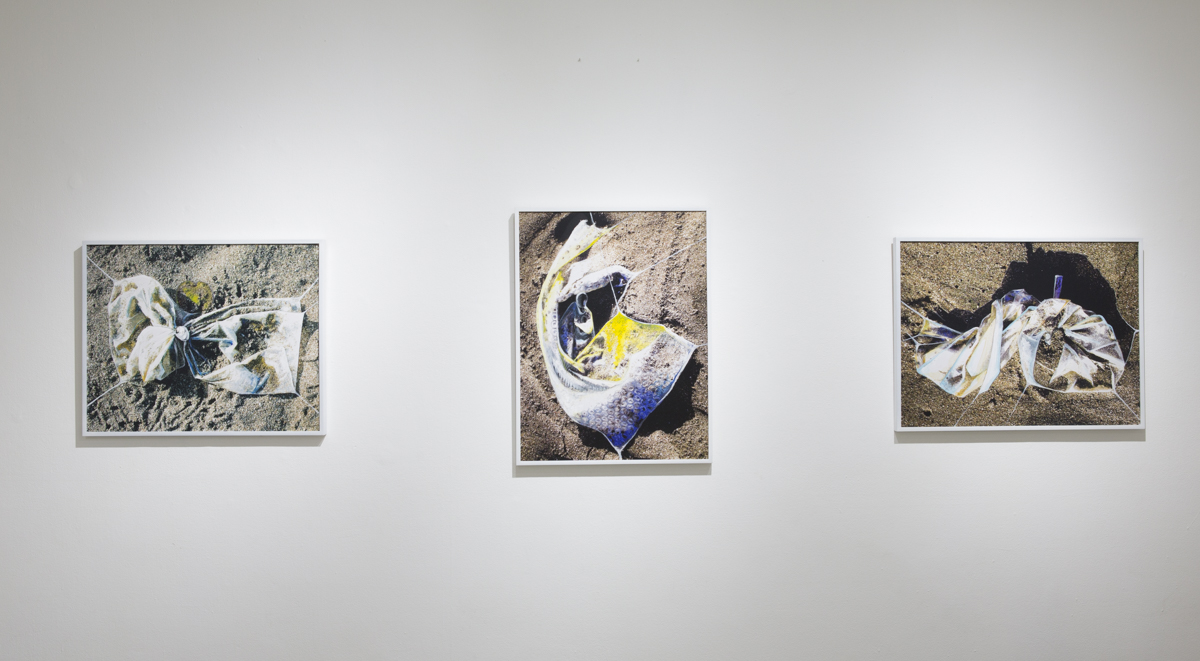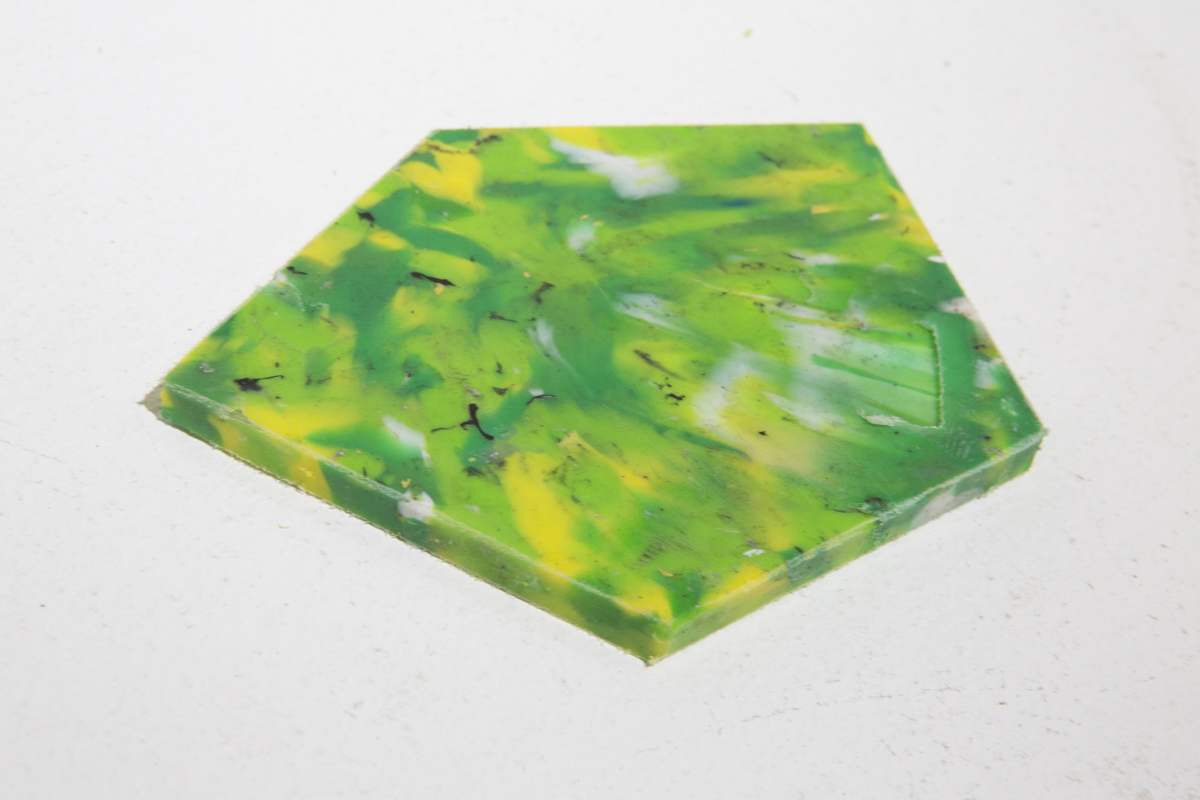Plasti.co
old plastic + heat + form = new product
The idea for the project is simple, to demonstrate the multi-layered value of what we think of as trash: plastic. On average, it takes between 500-1000 years for plastic to biodegrade, which means that nearly every piece of plastic ever made still exists today. To put that into context, if plastic had been invented in the post-classic stage we would be viewing plastic straws in glass cases alongside archeological artifacts like obsidian arrows and metates. But since plastic was invented in 1907 and it accumulates rather than breaking down, its legacy is up to us.
Plastic is taking up valuable space in our landfills, filling our oceans and using up our natural resources, all with detrimental effects to the natural environment. But that doesn’t have to be the case. If we look at plastic for what it is, raw material with actual monetary value, ripe for the making and sitting in trash cans and beaches, could all of that change?
The Precious Plastic’s recycling machines are one answer to that question. These machines are made with open source plans developed to democratize the plastic recycling industry and to make working with recycled plastics available to a broad range of people and disciplines. Plastic is a relatively simple material to manipulate, just add the amount of heat you need to bake a dozen cookies and you can change its form. The machines are just a tool like screwdrivers, printers and sewing machines; the possibilities are defined by the user.
Laberinto Projects, an arts and education organization and Lero Studios, an industrial design firm, have collaborated to make this exhibition possible and to share this technology with the arts and design communities of El Salvador. This was made possible by the support of the Cultural Center of Spain, Fundación Coatepeque and metroBethesda Rotary. Our goal is to introduce this technology to the creative economy with the hope that if we can shift the attitude of El Salvador’s makers and creators, we can also change the awareness surrounding this precious material. In order to be relevant in our respective fields, it is critical to respond to the times. We believe it is the role of the creative to integrate sustainable materials and environmental consciousness into their practices.
We invite you all to help us build this exhibition over the course of its life by working with the machine specialist through the entire process of plastic recycling — from the trash pile, through the sorting, grinding and melting to the product and pop-up shop. We invite you to collaborate, bring your own plastic and propose future projects to keep these machines running on recycled material for years to come.
plástico usado + calor + molde = producto nuevo
La idea de este proyecto es simple, demostrar el valor de algo que percibimos como basura: el plástico. En promedio, el plástico se tarda 500 años para biodegradarse, lo que implica que cada pieza de plástico creada en la historia existe hoy todavía. Para ponerlo en contexto, si el plástico hubiera sido inventado en el periodo posclásico, estaríamos viendo pajillas plásticas en vitrinas junto a artefactos arqueológicos como puntas de flecha de obsidiana y metates. Pero, ya que el plástico fue inventado en 1907 y se acumula en vez de desintegrarse, su legado depende de nosotros.
El plástico está tomando espacio valioso en los vertederos, llenando nuestros océanos y usando nuestros recursos naturales, todo esto trayendo efectos dañinos para el medio ambiente. Pero ese no tiene que ser el escenario necesariamente. Si vemos el plástico por lo que es: un material en bruto con valor monetario real, listo para ser utilizado, tirado en basureros y tapando las alcantarillas, ¿podría esto cambiar?
Las máquinas recicladoras de The Precious Plastic son una respuesta a esta pregunta. Estas máquinas son construidas con planos de código abierto para democratizar la industria del reciclado del plástico y para hacer el trabajo con plásticos disponible a un amplio rango de personas y disciplinas. El plástico es relativamente un material simple de manipular, solo necesita la cantidad de calor que se usa para hornear una docena de galletas y con eso se puede cambiar su forma. Las máquinas son una herramienta como un desatornillador, un impresor o una máquina de coser. Las posibilidades son definidas por el usuario.
Laberinto Projects, una organización para las artes y la educación, y Lero Studios, una firma de diseño industrial, hemos colaborado para hacer posible esta exhibición y para compartir esta tecnología con las comunidades artísticas y de diseño de El Salvador. Hecho posible con el apoyo del Centro Cultural de España, Fundación Coatepeque y metroBethesda Rotary. Nuestra meta es introducir esta tecnología en la economía creativa con la esperanza de que si podemos cambiar la actitud de los creadores del país, podríamos cambiar la consciencia que rodea este precioso material. Para poder ser relevantes en nuestros campos de trabajo es crítico responder al tiempo en que se vive y creemos que es el rol de las personas creativas integrar materiales sostenibles y consciencia ambiental en sus prácticas.
Les invitamos a todos a ayudarnos a construir esta exhibición durante el tiempo que dure trabajando con un especialista a través del proceso completo de reciclado del plástico: desde el promontorio de basura, pasando por la selección, molido y derretido hasta la elaboración del producto. Les invitamos a colaborar, a traer su propio plástico y proponer proyectos futuros para mantener estas máquinas en funcionamiento con materiales reciclados en los años por venir.
Plasti.co is a collaboration between Laberinto Projects and Lero Studios. It is supported by the Cultural Center of Spain, Metro Bethesda Rotary and the Lake Coatepeque Foundation. The machine was created with the open source plans of Precious plastics.
Plásti.co es una colaboración entre Laberinto Projects y Lero Studios, que con el apoyo del Centro Cultural de España de El Salvador, Metro Bethesda Rotary y Fundación Coatepeque, construyeron las máquinas open source de Precious Plastics.


















